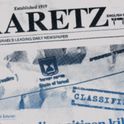Summer daytime temperatures in Bahrain easily creep up to 46°C, making even minor outdoor ventures feel like expeditions into the mouth of a whistling kettle. But while the climate saps energy, it has yet to drain the passion and rage coursing through this tiny Arab kingdom, as tens of thousands of protesters proved last week.
The demonstrators marching outside Bahrain's capital Manama were mainly from the Gulf country's Shia community, a majority of the 1.2 million population, yet held at arm’s length from any true power. They were objecting to the country’s so-called “national dialogue,” a jamboree of state-appointed MPs and civil society activists supposedly aimed at delivering political reforms. The authorities insist this is a genuine reconciliation effort in response to the pro-democracy uprising in February and March, and the subsequent bloody military crackdown that left 30 people dead. But protesters say the dialogue only offers the veneer of change in a country where the establishment is loath to cede control.
This is, after all, a regime where almost all governing authority flows through the ruling Al Khalifa family, a Sunni house that has ruled Bahrain since 1783 and currently accounts for half of the country’s serving cabinet ministers.
The dialogue is wildly skewed in favour of the government. In the last elections the main opposition party, the Shiite Al Wefaq National Islamic Society, gained 18 MPs in the National Assembly’s 40-seat chamber. However, it was only offered five delegates out of 300 in the “national dialogue.” Not that they would have been able to send a full contingent anyway, since key opposition members are still in jail in the wake of what the authorities call “the events” of earlier this year.
The Al Wefaq party walked out of the dialogue last month, branding it a farce. Khalil Elbrahim al-Marzooq, the former Al Wefaq MP who led the walk-out, tells me that he did not want to legitimise a fake discourse. “We wanted a credible dialogue. And not just us, but the Bahraini people and the international community,” he says. “People need real representation. But this was pre-fixed: the membership, the agenda. We don’t consider it a forum because there is no debate.”
Government officials respond to such complaints by claiming that Al Wefaq should have stayed until the end of the talks before passing judgment, and that the national dialogue wasn’t really about politics anyway, but about broader social issues. The most revealing criticism aired against Al Wefaq is that the party is a Shiite pawn of either Iran or Hezbollah. Indeed, officials claim that there might have been authentic reform demands amongst the protests earlier this year, they were soon hijacked by militants intent on replacing the monarchy with an Islamic republic.
This was certainly the line of Fatima Al Balooshi, acting minister of health, who tells me that the protests were romanticised by a western media that saw Bahrain as just another dictatorship awaiting change. “The protests were hijacked by outside countries. We have evidence that it was Iran and Hezbollah,” she says. “It was a conspiracy to take over our country. They want to take over Bahrain.”
The government never presents any substantial proof of this conspiracy. As Nabeel Rajab, president of the Bahrain Centre for Human Rights says, “This is the only Arab uprising that was essentially peaceful.” Rajab was arrested and tortured during the uprising. “Yes, there were some who called for regime change, but none of them called for an Islamic state,” he tells me. “Demands for self-determination were not what I would call radicalism.” Even Al Wefaq pledges loyalty towards the King, insisting that political reform should take place within the framework of the constitutional monarchy.
By tying the opposition to Iran, the government is branding more than half the country’s population traitors-in-waiting. This has been its justification for discriminatory policies that exclude Shia from much of public life. Shia politicians are sometimes appointed as government ministers, but they are almost never found within the police, the armed forces, and the most powerful ministries such as defense, interior, and foreign affairs. There are large wealth disparities too, with the Shia missing out in the country's economic boom, suffering disproportionate unemployment and lacking access to housing. The 2010 Freedom House country report on Bahrain lowered its status from partly free to not free.
Yet the opposition movement has consistently tried to cut through the religious boundaries with its calls for more economic and civil rights. For the establishment, reform is not just about skipping a messy, unpredictable regime change, but about heading off a whole chunk of the democratic demands that we take for granted in the west.
The repressive turn risks undermining Bahrain’s reputation as an oasis of liberalism, moderation and modernity in the region. Women in Bahrain have far more rights here than in Saudi Arabia, education and healthcare are free, and for all its economic disparities, the country is relatively rich and dynamic. Yet there is little indication that the Shia are being engaged as full citizens. Rather, the government’s continued policy of linking political opposition to foreign meddling and religious extremism is likely to fuel discontent and stoke the very sectarianism that the ruling regime insists it wants to avoid.
Meanwhile, Bahrain’s brief moment in the global headlines now appears to be fading from the media’s memory. Ramadan began on Monday, and that is likely to mean a time-out from heavy political activities for the next month. The opposition has shown impressive staying power to maintain protests until now, but the government has succeeded in riding out the storm. Whatever hope for democracy the Arab Spring represented, it looks like being forgotten in Bahrain.
Leo Cendrowicz is the Brussels correspondent for Time magazine
Bahrain: the forgotten Arab Spring
August 02, 2011











